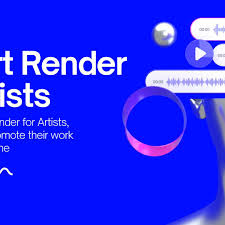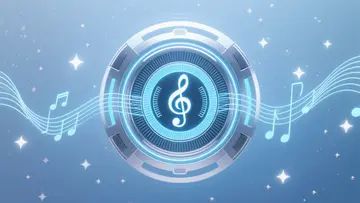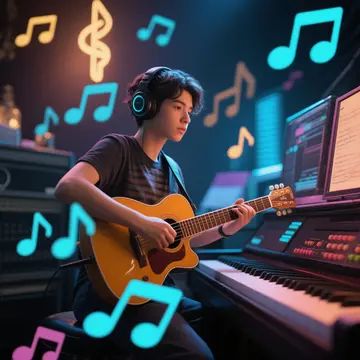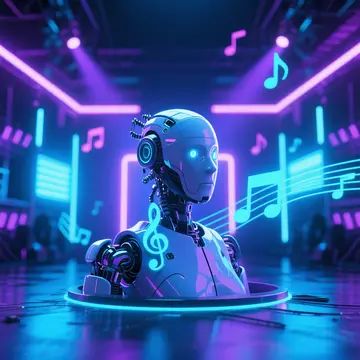?? Introduction: The Rise of AI in Music Production
In 2025, artificial intelligence is no longer just a tool—it's a collaborator. Music producers are adapting to a new landscape where AI can generate beats, suggest chord progressions, and even mix and master tracks. But this doesn't mean the role of the producer is disappearing. Instead, it's evolving. Here’s how AI is changing the role of music producers—and what it means for the future of music creation.
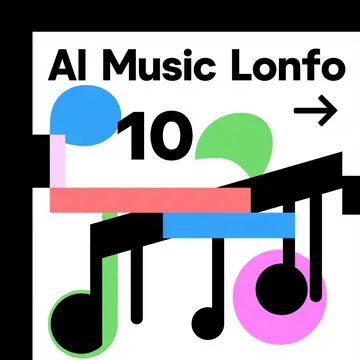
?? Traditional Role of a Music Producer
Historically, music producers have worn many hats: creative visionary, technical expert, sound engineer, and project manager. Their responsibilities include shaping the sound of a track, managing recording sessions, and guiding artists toward their musical goals.
?? What AI Brings to the Table
1. Automation of Technical Tasks
AI tools like iZotope Ozone, LANDR, and Neutron can now handle mixing, EQ balancing, and mastering with minimal human input. This allows producers to spend more time on creative direction rather than technical tweaks.
2. Instant Idea Generation
Platforms like AIVA, Udio, and Suno can generate melodies, basslines, and entire compositions from text prompts. Producers use these outputs as jumping-off points or as production-ready layers.
3. Democratization of Music Creation
With AI tools becoming accessible to amateurs, producers are shifting from gatekeepers of production knowledge to mentors and curators. Their value increasingly lies in taste, storytelling, and curation.
??? How the Producer’s Role Is Evolving
1. From Technician to Curator
As AI handles more of the “how,” producers are focusing on the “why.” They now curate, refine, and contextualize AI-generated content, ensuring the final product is emotionally resonant and artistically cohesive.
2. Focus on Human-AI Collaboration
Producers are becoming AI conductors—knowing how to prompt tools effectively, mix human and machine-generated elements, and direct the overall aesthetic vision.
3. New Skills Are Required
Producers now need skills in prompt engineering, data labeling, and familiarity with machine learning models. Understanding how AI “thinks” is becoming as crucial as knowing how microphones work.
4. Rise of the “Prompt Producer”
Just like sampling created a new kind of producer in hip-hop, AI is creating the “prompt producer”—someone who specializes in crafting the perfect input to generate desirable musical output.
?? Challenges and Ethical Concerns
Originality: Overuse of AI tools could lead to homogeneous-sounding tracks.
Attribution: Who gets credit when an AI contributes to a song?
Job Displacement: Entry-level producers and engineers may find fewer opportunities if AI takes over technical roles.
?? The Producer’s Edge in the AI Era
Despite AI’s capabilities, producers offer something machines can’t replicate—emotion, taste, and cultural relevance. The best music of tomorrow will come from producers who combine technology with human storytelling, guiding AI toward truly meaningful results.
?? Final Thoughts
AI is not replacing music producers—it’s reshaping them. The most successful producers in 2025 will be those who adapt, learn new tools, and harness the creative potential of AI without losing their unique voice. The future of music is hybrid, and producers are at the heart of that fusion.
FAQs
Is AI replacing music producers?
No. AI is a tool that enhances workflows, but it still requires human guidance for quality and emotional impact.
What skills should future music producers learn?
In addition to music theory and DAWs, learn prompt engineering, data sampling, and AI music platforms like AIVA, Suno, or Boomy.
Can AI help beginner producers?
Absolutely. AI can generate ideas and mix tracks, making it easier for beginners to learn the ropes and experiment creatively.
Learn more about AI MUSIC


